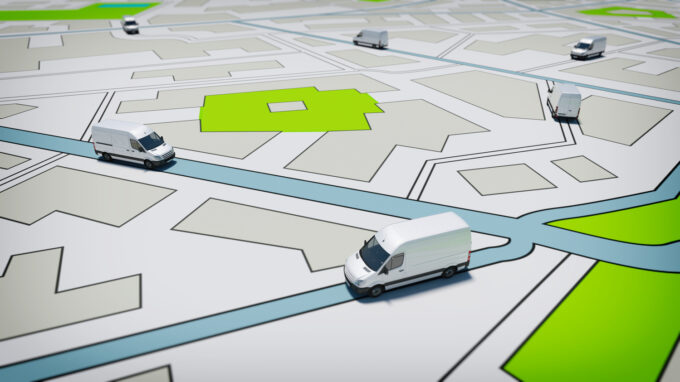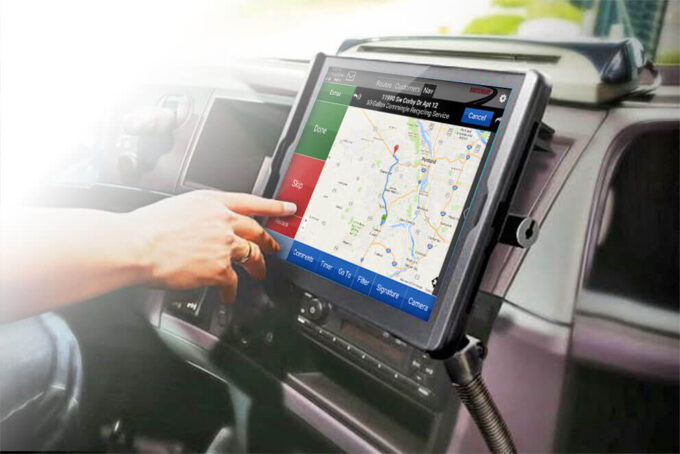Transparency and accountability is the backbone of any business. If you have one unproductive driver, your fleet business is at risk. Keeping more than three drivers and depending on their word to deliver cargo to clients may sure lead to the closure of your business.
Fleet tracking is rapidly gaining popularity because it gives real-time feedback about the drivers’ route, location, and status. Some of the top beneficiaries of compasscom.com are companies whose operations depend on transportation. An automated tracking system has several benefits, as discussed below.
1. Reduces operation costs
Source: tdownsdustlessblasting.com
Fuel and paying drivers’ wages are the two considerable expenditures in a transportation company. Therefore, it is imperative to keep these costs at their lowest all year round.
Fuel prices keep escalating and reduce a firm’s income.
An automated tracking system can help cut down the cost. A route manager can install tracking devices in all the vehicles to allow close monitoring. The device gives feedback about any activity that does not add value to the business. Some common errors are leaving the engine idle and running, taking longer routes, and pursuing other personal engagements.
2. Tracks locations
Transportation business depends on reliable routes to help deliver to clients within the shortest time but maximize profit. Tracking systems like Route4Me Route Planner enables the company to map out the locations where drivers can stopover for a quick break, refuel, or deliver cargo. Any undesignated stop-over may be a tell-tale of the drivers’ truancy.
A fleet business can integrate tracking systems with satellite technology and geo-fencing applications to help manage movement effectively. Moreso, tracking locations ensures that drivers can never get lost because direct routes guidelines come from a central command post.
3. Ensures tight security
Vehicles are the most valuable assets in the transportation business. They are also easy targets for robbery. Although the fleet vehicles have insurance against theft, investing in an automated tracking system to safeguard your business is prudent. Additionally, most insurance providers’ demand a tracking system before offering cover.
A tracking system allows the monitoring of any hijacked vehicle. Therefore, it can be traced on the radar, thus helping the police find it easily.
Automated tracking also secures the lives of your employees. If drivers are tracking in potentially dangerous areas, the fleet tracking devices can help alert them to take an alternative road.
4. Better customer service

Source: businessvans.co.uk
Your vehicles are always on the road to deliver goods to eager customers.
One of the most significant benefits of investing in automated tracking software is improved service. A tracking system enables you to inform your customers of the status of their cargo. You can tell the exact time a specific driver will arrive or alert them of eventualities such as delays.
5. Increased productivity
A tracking system enhances service delivery. The drivers know the company’s expectations of them and work to meet deadlines. Consequently, the tracking system limits the time spent on other unproductive activities such as unnecessary stop overs, lengthy calls, and other such errands. Therefore, they can deliver cargo in time to meet customers’ expectations.
A tracking system helps in managing time, cutting costs to increase productivity and effectiveness. It is a worthwhile investment for every transportation business.
6. Real-time updates
Communication is an essential element in any fleet and cargo business. It is imperative to know where particular driver is and when they’re likely to arrive at a designated destination. Real-time tracking can be remotely accessed to increase driver efficiency and reduce operating costs.
7. Optimizes financial management

Source: businessnewsdaily.com
A fleet management system can allow trackers to analyze particular routes taken by drivers to improve service. One can use the obtained data to analysis gains and losses for a single route comprehensively. The information can be used to allocate resources and make any profitable adjustments strategically.
8. Isolate superior route planning
A fleet company that uses a tracking system can map the most profitable route among many other used by other drivers.
Routes that save time and money are ideal for any transportation company because it uses less and gain substantial profit. GPS tracking data results in smart route planning and helps to reduce unproductive work and do away with unnecessary fuel expenses.
9. Helps manage workers effectively
A GPS system works as your tentacles. It helps you supervise your employees remotely and maximize profits. The drivers may be miles away from you, but by the click of the finger on your handheld device, you can monitor and make a judgment of their productivity. It provides real-time evidence for each driver to help you make informed decisions such as corrective actions where necessary.
10. Makes your services predicable

Source: routeware.com
Transportation business requires precision. Your clients need to know they can depend on you and take your word about their cargo. A GPS tracking system enables you to provide your clients with an accurate delivery schedule, real-time tracking details and other immediate minute details. A satisfied customer is a reliable client to spread the news of your excellent customer service.
11. Reduces fuel expenses
Fuel prices is a never-ending nightmare. Therefore, reducing fuel costs should be the ultimate goal of any transportation company because it has significant implications on the return on investment. An automated tracking system helps monitor speed and avoid idling the engine, therefore reducing fuel usage. A GPS fleet tracking system is a worthwhile investment in any transportation company.
12. Reduces insurance cost
Your vehicles are the most significant assets in the company. An insurance company is a requirement that secures your fleet of cars. Any reliable insurance company can never insure a vehicle without a tracking system.
This is because an automated tracking system increases the chances of finding a stolen car. Fleet insurance is also cost-effective because all vehicles get insured under one policy instead of investing in an individual insurance.
Each vehicle is assessed and then combined to qualify for fleet insurance. Some of the issues assessed are the driver’s history, location, vehicle age, and annual mileage.
An automated tracking system is a must-have for any productive venture in the transportation industry. Therefore, it is imperative to invest in a reliable tracking company.







